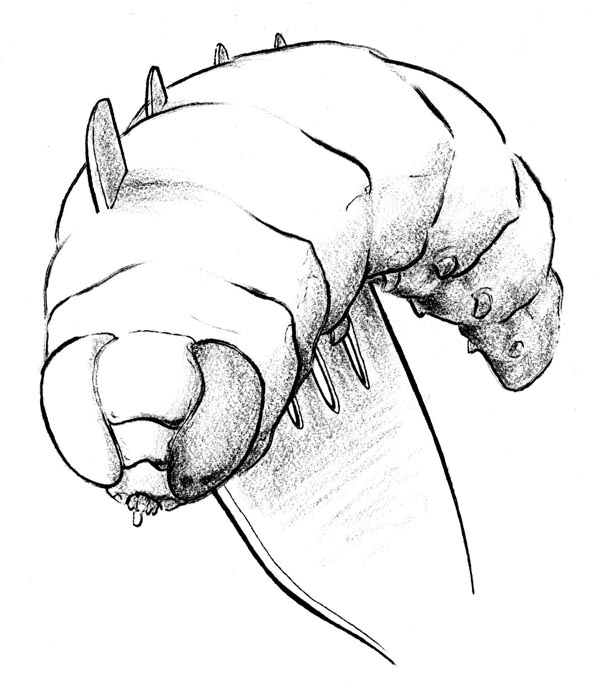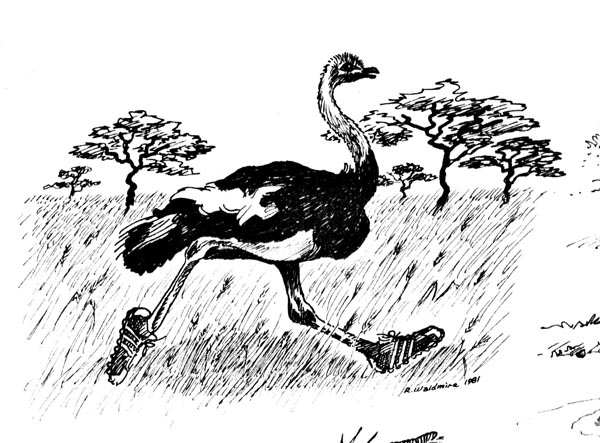|
|||||||||||||
|
For the Sake of Eating Eating Meat By Punkerslut
Human civilization is founded on the domination of humanity over all of the living forces on this planet; whether they are plant, fungus, or like ourselves, even animal. For us to live requires that we sustain ourselves on some type of energy -- on the products of some life form. Just to exist requires the end of the life process of something alive. That leads to a choice in how we decide to live. We can choose to consume life that is not conscious, that is not aware of its existence nor could be aware of its death. That is, we can choose to consume plant life, to live off of farms and the harvests of human labor. Or, we can choose to consume life that is conscious, just like us; we can choose to kill and eat beings that feel suffering and misery to the same extent as us. We must make one choice, since it is a choice concerning our own existence. Consider the choice of eating animals, or eating products that came from the slaughter of animals. These are beings that can suffer like us. Their curse is not so much their weakness, their lack of civilization, or their inability to communicate. Their curse is appearing so physically different from human beings, that we feel we can make a distinction in between valuing human and animal life. This distinction is more of a culture based on prejudice and bigotry, rather than a logical philosophy. Like those who make the distinction based on race, this mindset is the development of an unthinking culture. The pigs in the pen, the chickens in their cages, the cows being dragged through the slaughterhouse -- each of them can suffer in the same way as any human being. They still have self-interest, though it is interpreted differently. They both avoid pain and seek pleasure, and in a language clearer than any human one, they are capable of expressing how they feel. The whelps of a dog in pain, the affectionate pulling of a cat; these are symbols that everyone has experience and can make out clearer than human words. We are just as capable of recognizing the hunger pangs of mink foxes in cages or the deep moans of agony from horses being whipped. The sympathy that certain humans have for animal life is based on the same mechanism and principle of humans having sympathy for each other. It is recognizing that another being is in suffering. Another being who is similar to you, but not you -- and their moment of misery has made you remember your moments of misery. It has made you relive the torment you have felt at the hands of others, and, with the same passion, it gives you the clearest meaning of justice. If you are not moved by a chimpanzee rattling the cage he lives in, then you might not be moved by a human being doing the same thing. We sympathize with others, because we know that they are capable of suffering, as we are; we see ourselves within them. This means that our entire, human morality deserves investigation. If sympathy is based on our ability to interpret and understand suffering, then what does this mean to our principles of justice and fairness? With a morality that is based on our ability to suffer, we cannot extend equality to humans and exclude animal life. The non-human animals of the planet can feel just like any person; they are equally capable of emotion, passion, suffering, and want. When using the word 'kill,' there is a special distinction: it does not simply mean to take life, but the taking of conscious life.
Plants, which are not capable of consciousness or suffering, can neither desire to live nor want to avoid dying. Even if we were to grant privileges and rights to the plant organisms of the earth, there would be no way of defining them. Since vegetation cannot desire, there is no right it would appreciate, since it feels the same when it is born as when it dies. If rights are guarantees of living standards to meet our needs, then there can be none given to plant life: they have no needs. At least, in terms of a consciousness that wants. By eating products of animal life, consumers are contributing to an industry that is based on the killing of conscious life; a business that is founded on producing life in miserable conditions, bringing it to adult life, only so that it can be slaughtered. It is all for the sake of eating. This killing does not take place to uplift civilization, to advance us further in thought, to provide better for the world's people. No, this killing happens because people prefer the taste of cooked flesh to vegetables and fruits; it is a killing that happens because of attitudes that demote animals to "objects" and "possessions" of humans. What happens to the body of these poor, forgotten creatures -- those trillions of chickens, cows, and pigs killed? They are frozen, thawed, marinated, seasoned, cooked, and then finally, ingested by humanity. They travel through the stomach and to the intestines, where the meat is broken up into many tiny particles that are diffused throughout the body; they are the generously-titled "nutrients and vitamins" making up the new fat and the muscle tissue. After being eaten, the next day they might become just some calories that are used up in walking. With every type of plant food available, humans choose flesh; and their decision is not because the killing of animal life is provides them with anything special or unique. It is not to bring them to a better peace, a more hopeful world, a better social organization, a more human understanding between nations and continents. No, the killing of an animal takes place to fulfill one meal -- one meal out of millions. It is not done for any greater end or achievement; it is done so that people can keep their blood pumping, can keep their lungs breathing. It is not done as a necessary sacrifice for something greater, but just so we can feed ourselves. There is the nobility of this ancient prejudice. The raising of cattle and chickens requires so much corn, hay, and feed. Not only does someone eat meat to serve their preference, but in doing so they deprive agriculture of acres of land that could have fed humanity. And it is done all just to eat, when there is unlimited variety in tastes and textures within the vegetable, fruit, and grain foods. It is not even a killing that takes place out of a fear of starvation, but simply to satisfy some taste preference, whose satisfaction passes within thirty minutes of the meal. Perhaps there is an irony in the injustice, because consumption of flesh and meat is linked to every type of health problem. It is not simply cancer, but there are serious health difficulties that effect the heart and the intestines from eating meat. It is not so much that we just kill to eat, but we kill to eat something that is poisonous, whether it is the beef full of artificial hormones or the fish full of mercury. We kill animal life, and then, in our gluttony of dominion, we slowly kill ourselves. If humanity is going to reach a higher condition of living, a better situation for society, then we need to abandon the savaged past. We need to abandon those traditions based subjugation and domination. We need to abandon our attitudes that allow us to commit awful acts when we are buying food. That is when civilization will have reached a more humane understanding of itself. Punkerslut,
|




